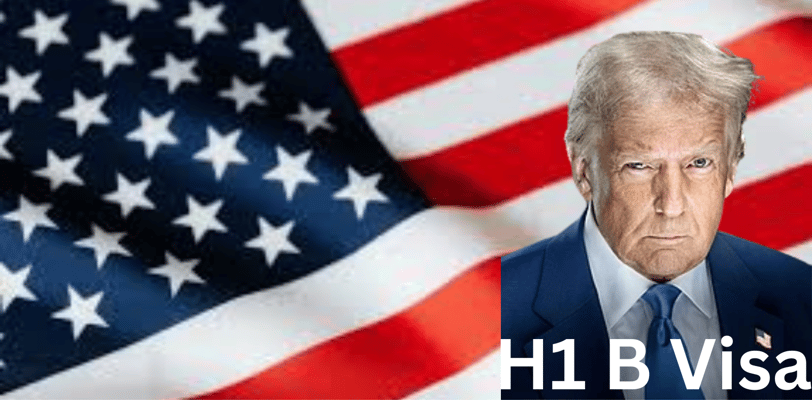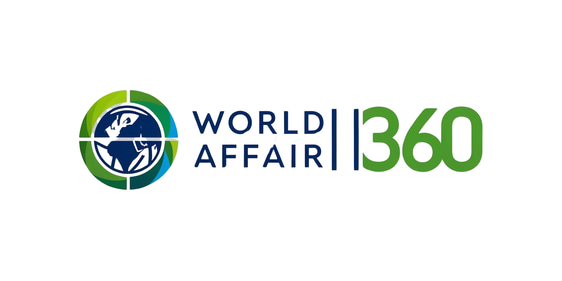Donald Trump on H-1B Visas: Advocating for Competence in Immigration
Donald Trump’s recent comments on the H-1B visa program reveal a shift toward supporting skilled immigration, particularly professionals with high-level qualifications in fields like technology and healthcare. While Trump has historically advocated for stricter immigration policies, his latest remarks signal the importance of foreign talent in maintaining U.S. economic competitiveness. His statement holds particular significance for India, where many skilled workers rely on the H-1B visa to pursue opportunities in the U.S. The future of the H-1B visa program remains uncertain, but Trump’s comments could provide some reassurance to those relying on it.
INDIAUSA


Donald Trump on H-1B Visa: "I Don’t Want to Stop, Need Competent People"
In recent news, former U.S. President Donald Trump made headlines with his comments about the H-1B visa program, expressing a stance that seems to strike a balance between supporting skilled immigration and emphasizing the need for highly qualified workers in the United States. In a statement, Trump said, “I don’t want to stop the H-1B visa program. We need competent people to work here.” This statement comes after years of debate over the H-1B visa’s role in bringing skilled workers, particularly in the tech industry, to the U.S.
The H-1B visa program, which allows U.S. companies to employ foreign workers in specialty occupations, has been a focal point of political discussions, especially concerning its impact on the U.S. labor market and on countries like India, where many applicants for these visas originate. Trump’s comments appear to reflect a nuanced view—acknowledging the benefits of skilled immigration while ensuring that such programs prioritize workers with high-level qualifications.
Trump’s Position on Immigration and the H-1B Visa Program
While Trump has historically supported more stringent immigration policies, including measures to curb the flow of foreign workers, his latest comments signal a pragmatic approach toward the H-1B visa system. Trump highlighted that the U.S. needs “competent people” to continue to innovate and maintain its global leadership, especially in fields like technology, healthcare, and engineering. The former president noted that while immigration policy should be more stringent, it must still allow for the entry of skilled professionals who can contribute to the U.S. economy.
This more balanced approach contrasts with some of Trump’s earlier rhetoric, particularly during his presidential campaign, when he called for reducing the number of H-1B visas issued each year. However, his recent statements suggest that Trump sees the need for talent from abroad to address labor shortages in high-demand sectors, which has become even more apparent in the wake of the COVID-19 pandemic.
Trump’s Views on Economic Competitiveness
Trump’s remarks also connect to broader concerns about U.S. economic competitiveness. As automation and artificial intelligence continue to reshape the labor market, there is growing concern about a shortage of workers with specialized skills. In this context, skilled immigrants—particularly those with backgrounds in tech, science, engineering, and mathematics—are seen as crucial to keeping the U.S. at the forefront of innovation. Trump’s latest comments seem to recognize that limiting skilled immigration could put U.S. companies at a competitive disadvantage globally.
Impact on India
The H-1B visa program has been particularly significant for India, which is one of the largest beneficiaries of this pathway to the U.S. As of 2023, around 70% of all H-1B visa holders come from India, especially in fields such as information technology (IT), engineering, and healthcare. The U.S. remains one of the most sought-after destinations for Indian professionals, and the H-1B visa provides many with opportunities for career advancement and financial growth.
Trump’s recent remarks are likely to resonate in India, where a large section of the IT workforce relies on the H-1B visa for opportunities in the U.S. While there have been concerns in India regarding the fluctuating policies on H-1B visas—particularly during Trump’s earlier administration—his new statement of support for skilled workers offers reassurance. Indian tech companies, including major firms like Tata Consultancy Services (TCS), Infosys, and Wipro, often send engineers and IT professionals to the U.S. on H-1B visas to work with major tech companies like Apple, Google, and Microsoft.
However, some experts caution that the visa program’s future remains uncertain, especially as discussions about limiting H-1B visas for lower-skilled workers or imposing more stringent wage requirements continue. If such reforms are implemented, Indian professionals may face more competition for the limited number of visas, or be subject to stricter criteria. For now, though, Trump’s stance may bring temporary relief to those seeking clarity on the future of the H-1B program.
The Road Ahead for H-1B Visa Reform
Despite Trump’s comments, the future of the H-1B visa program remains a topic of significant debate in U.S. politics. Some argue for a complete overhaul of the program, seeking to prioritize American workers or establish more rigorous wage and skill requirements. Others, particularly in the tech industry, advocate for increasing the number of visas issued to ensure a steady stream of global talent into the U.S. workforce.
The Biden administration, which has signaled a more open approach to immigration compared to the Trump administration, has not made significant changes to the H-1B visa system but has focused on improving the process for high-skilled workers. It remains to be seen whether Trump’s comments will influence any future legislative or executive action on the H-1B program, especially as the U.S. economy continues to recover from the effects of the pandemic.
